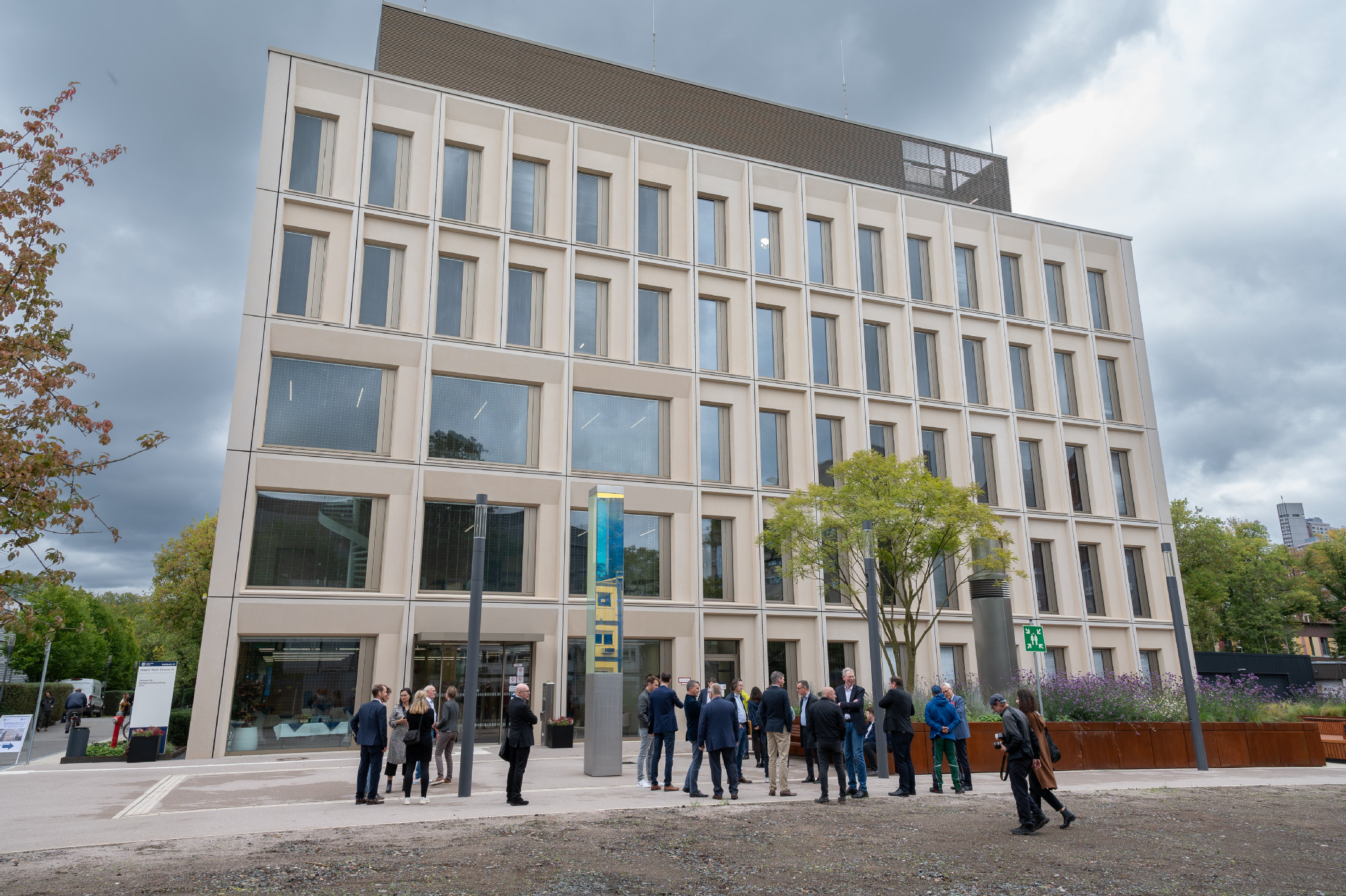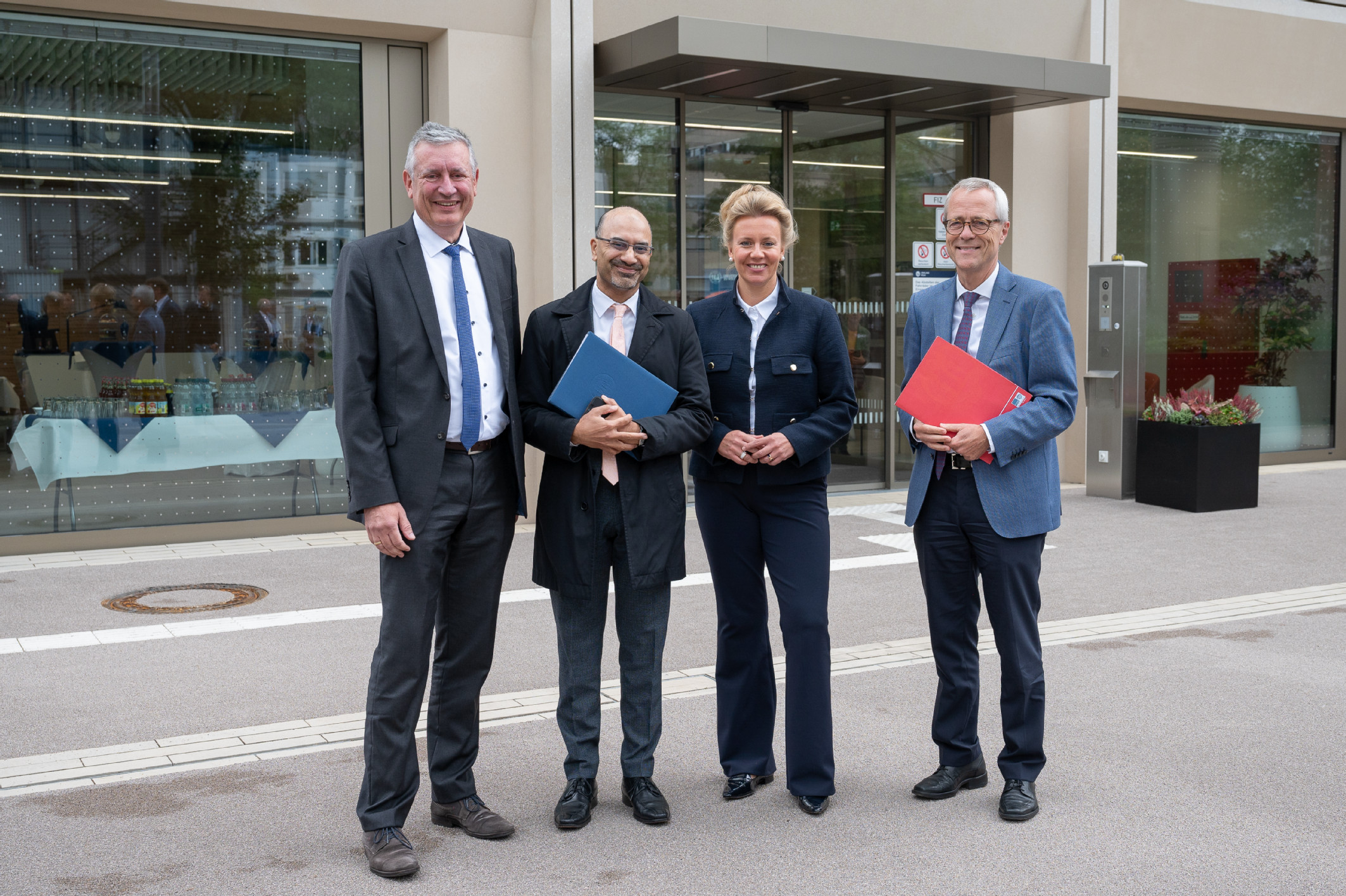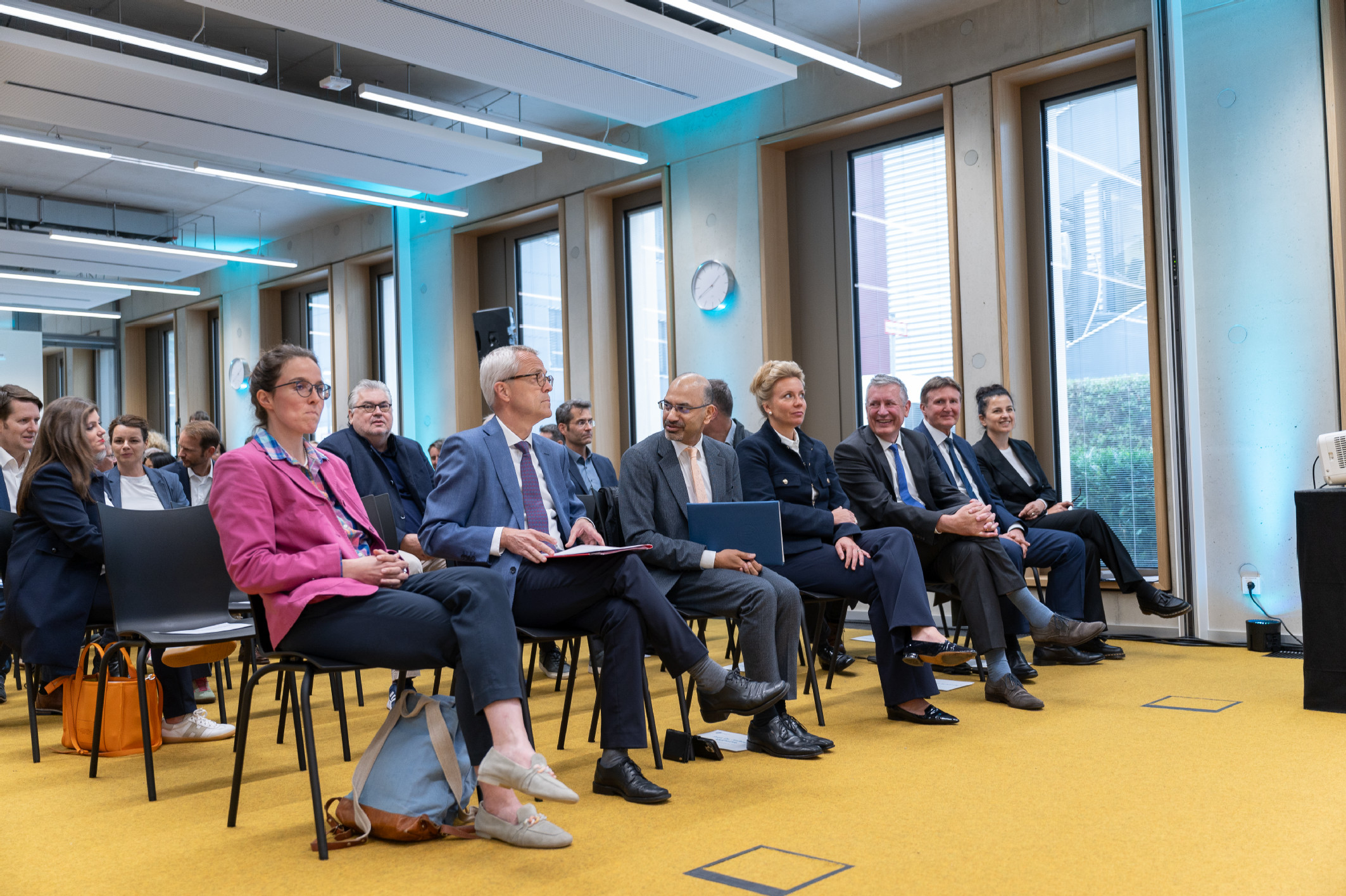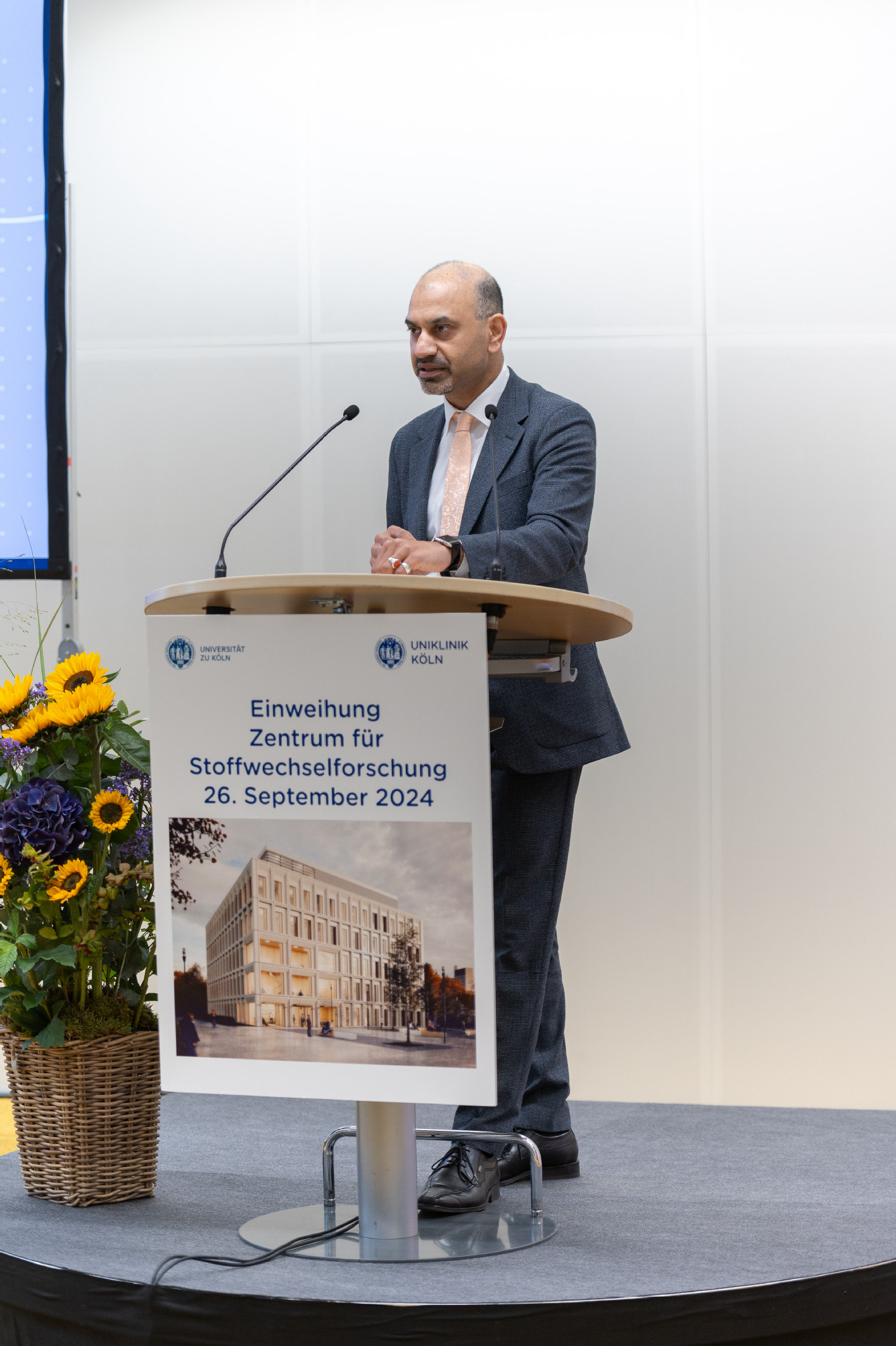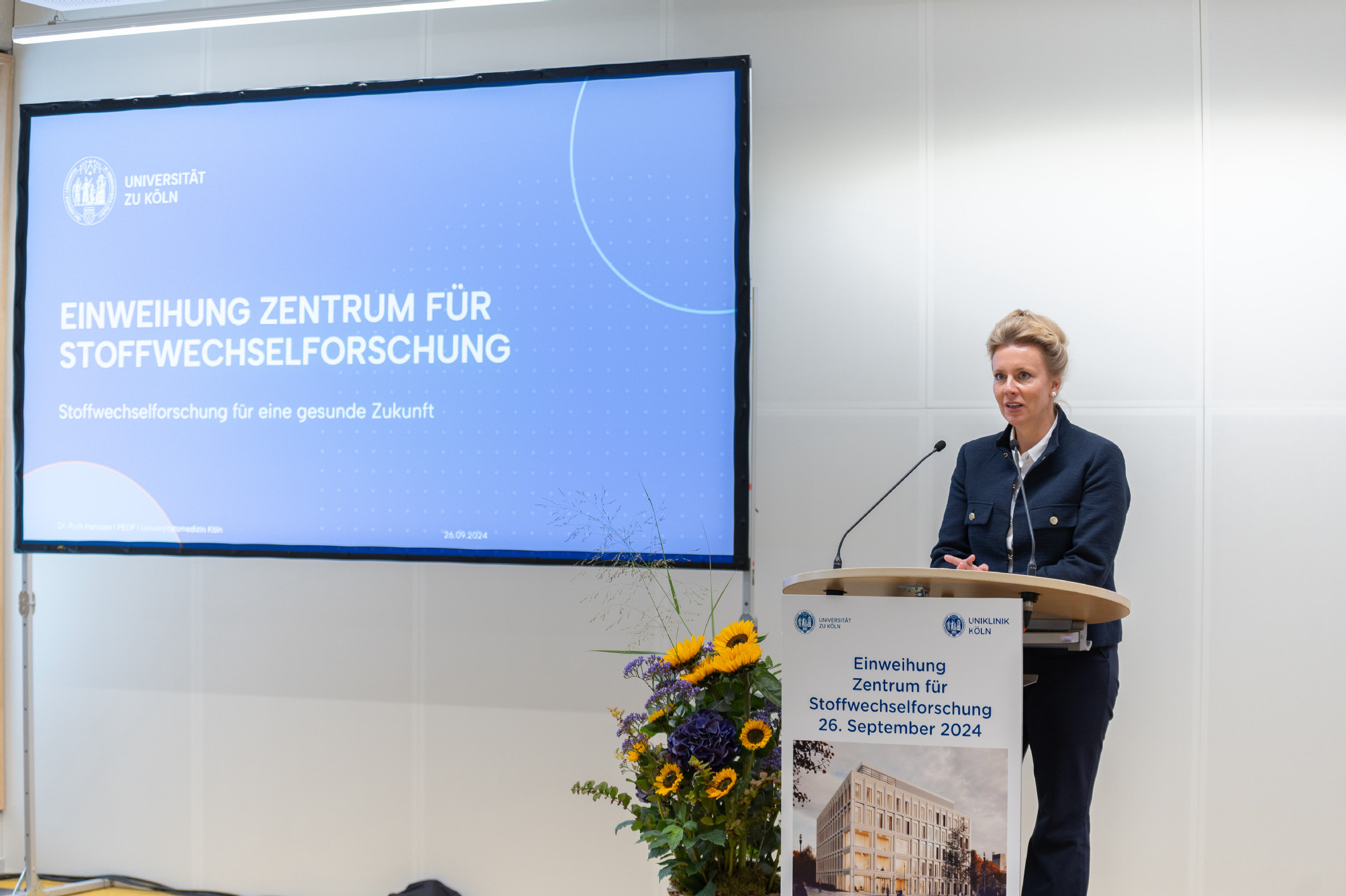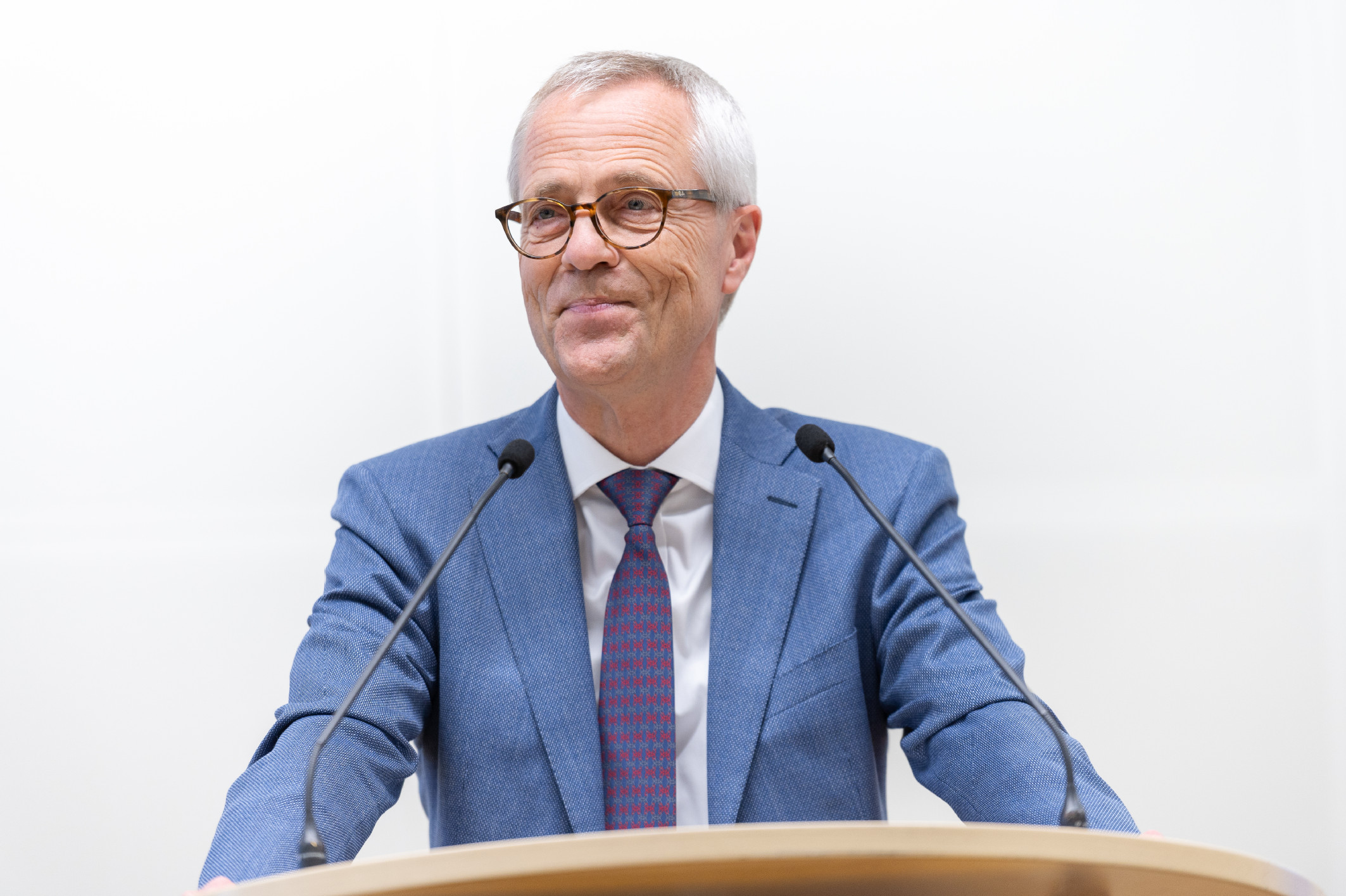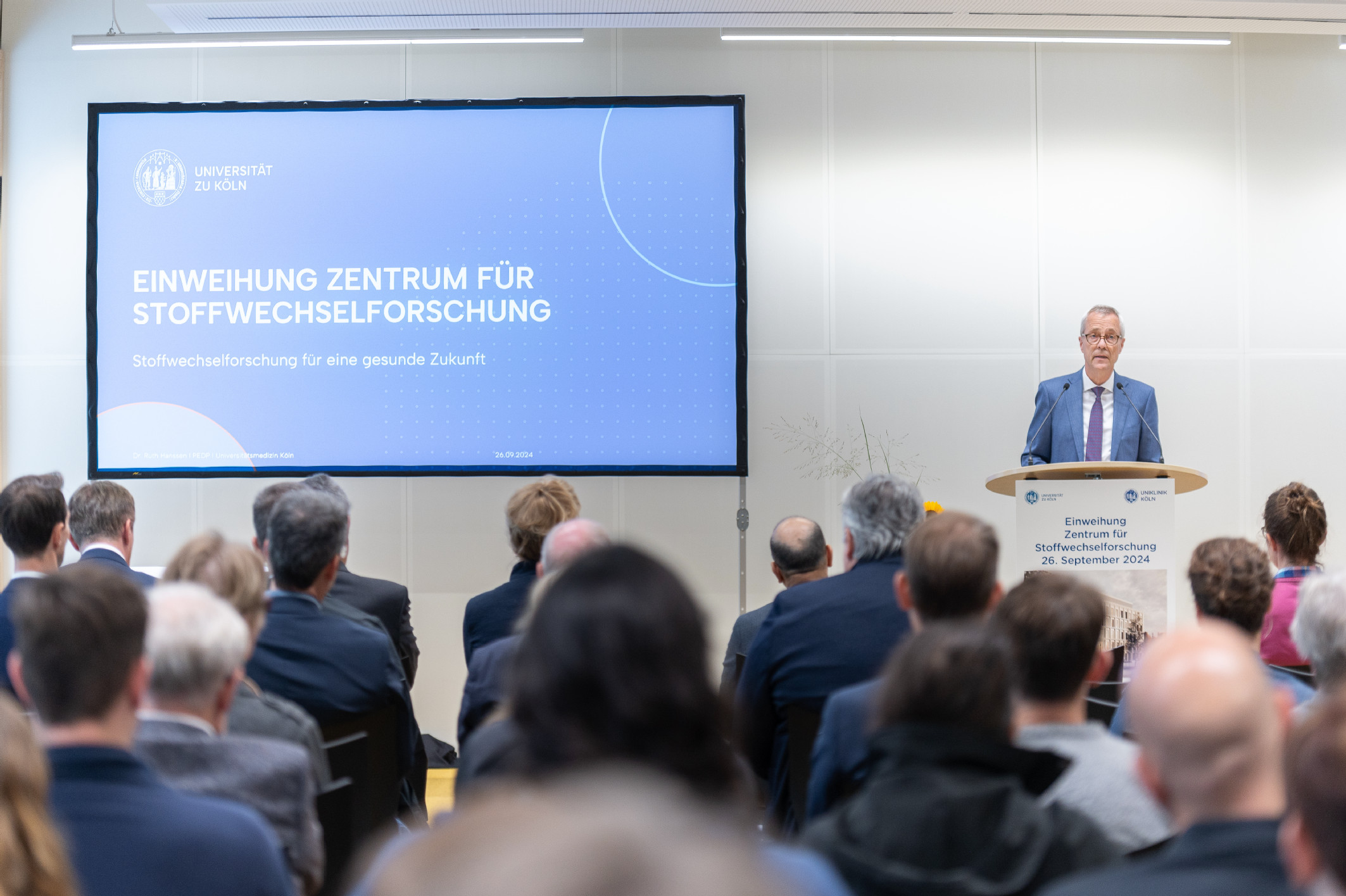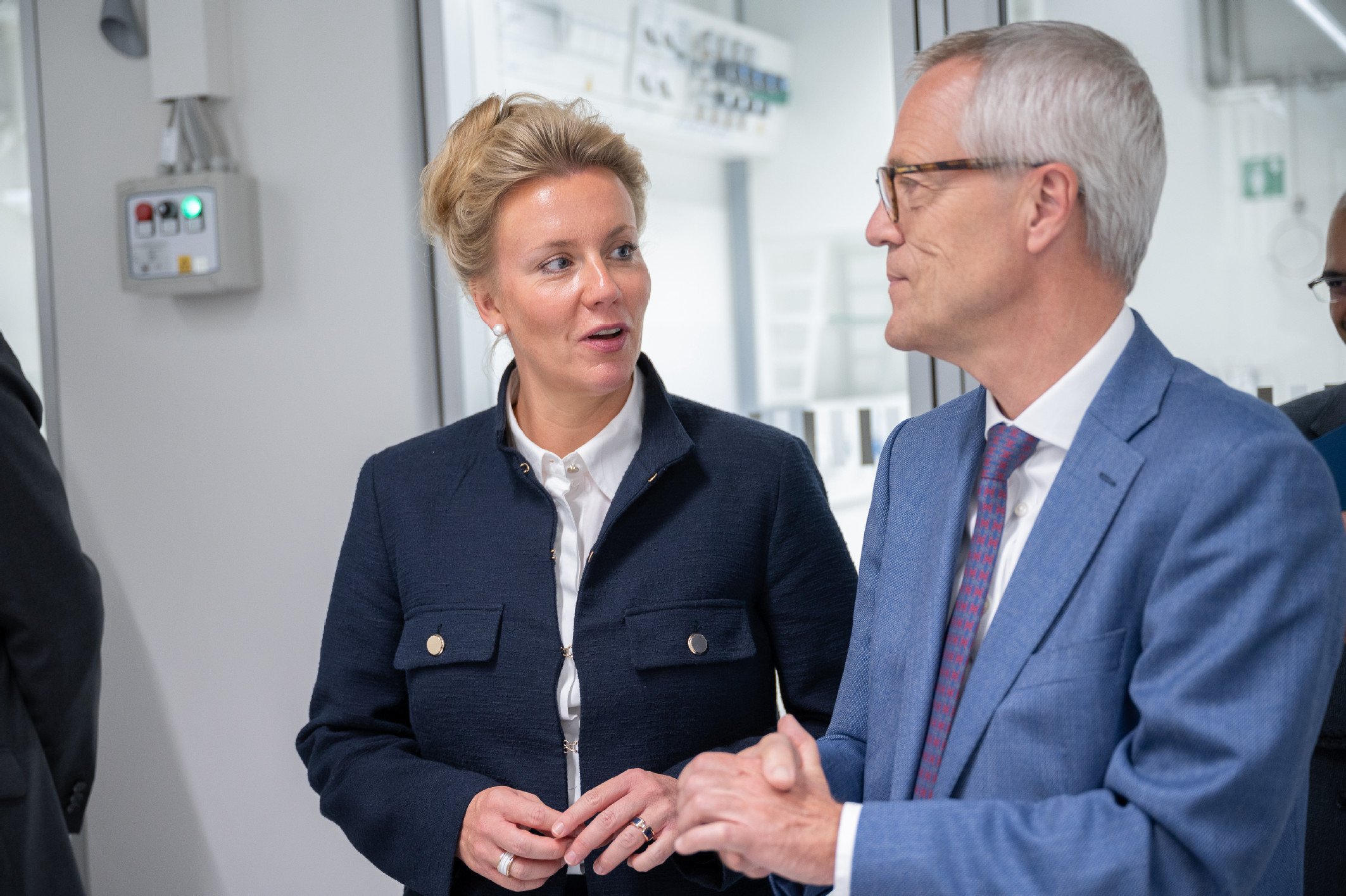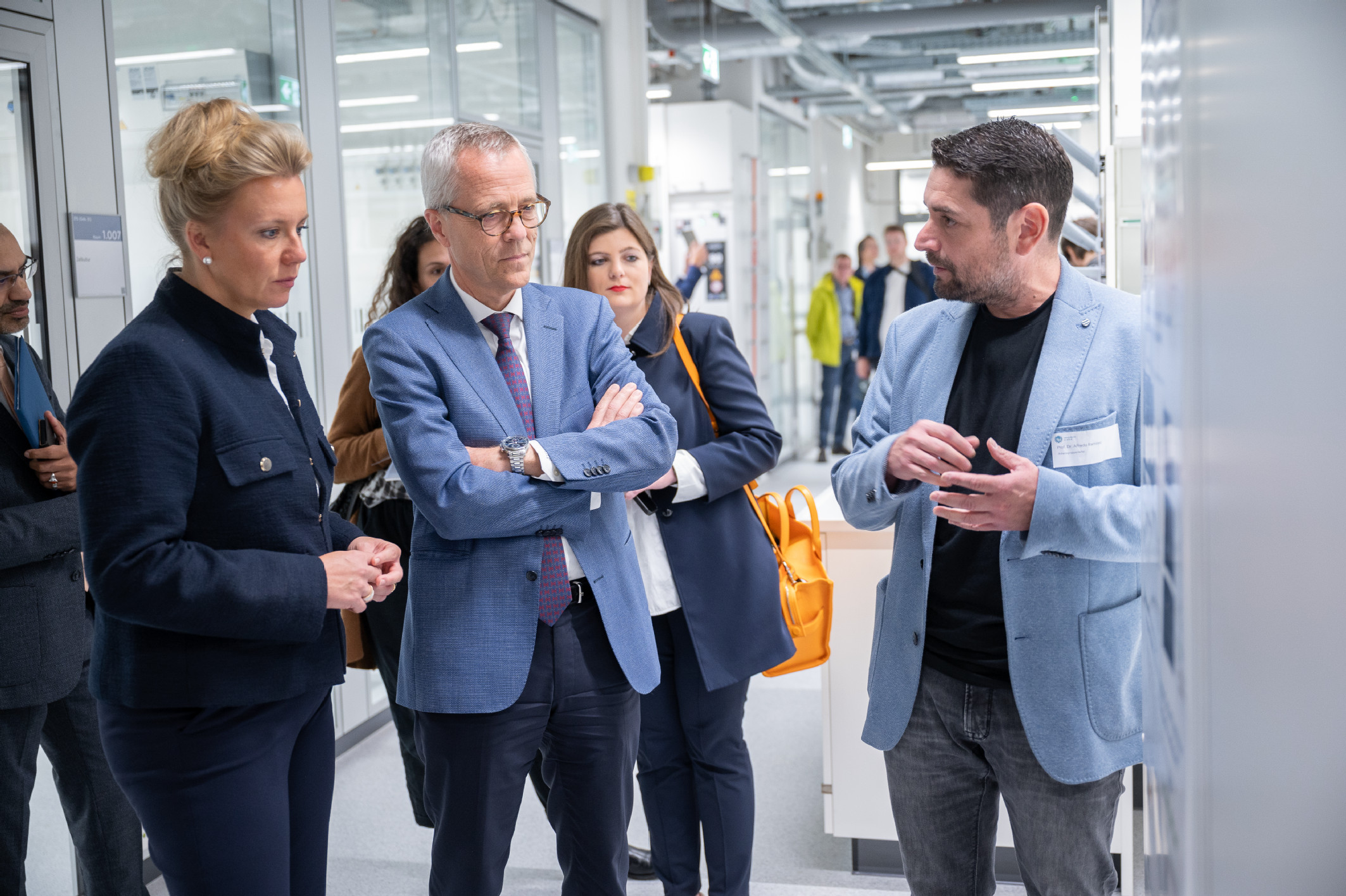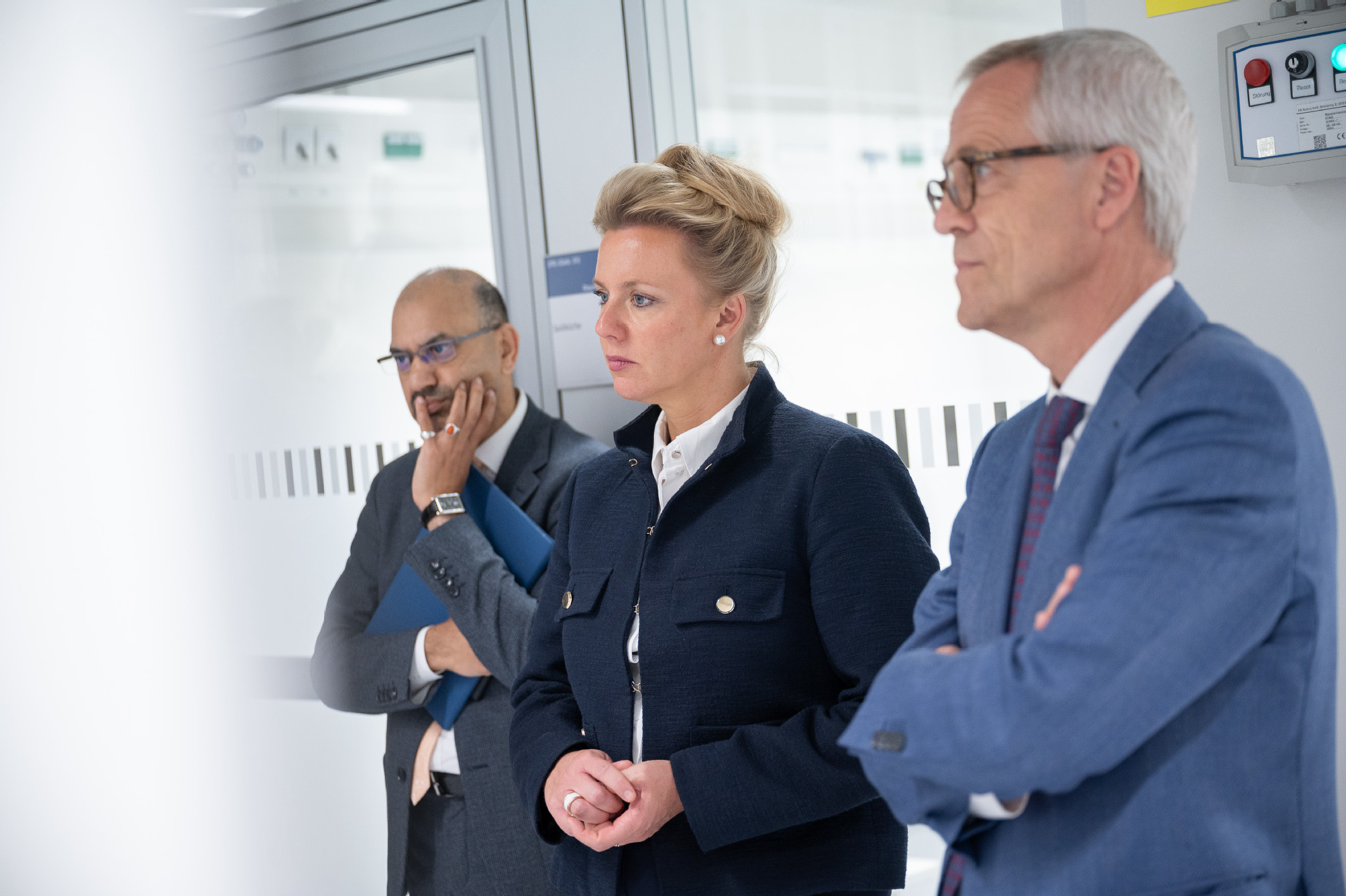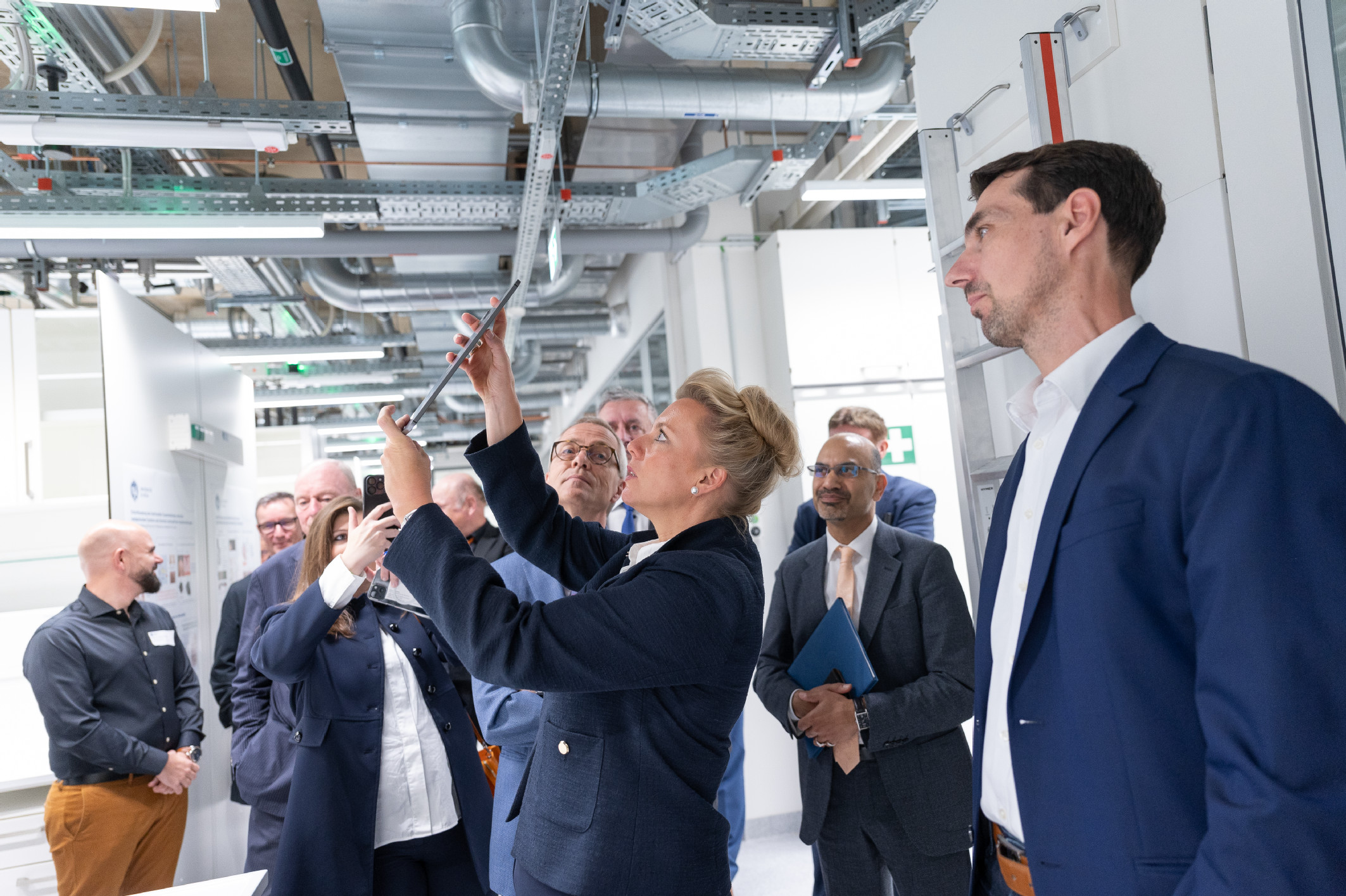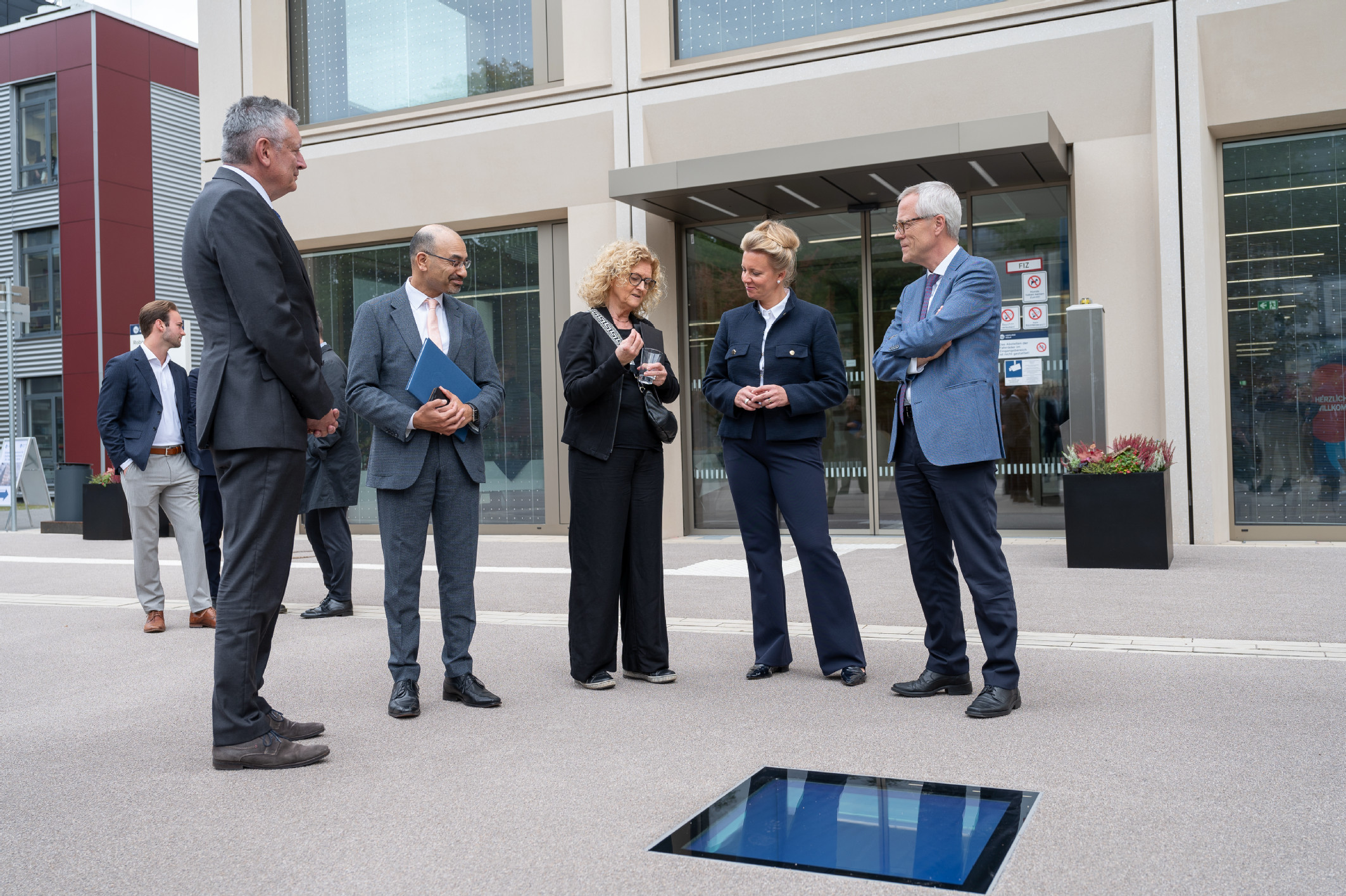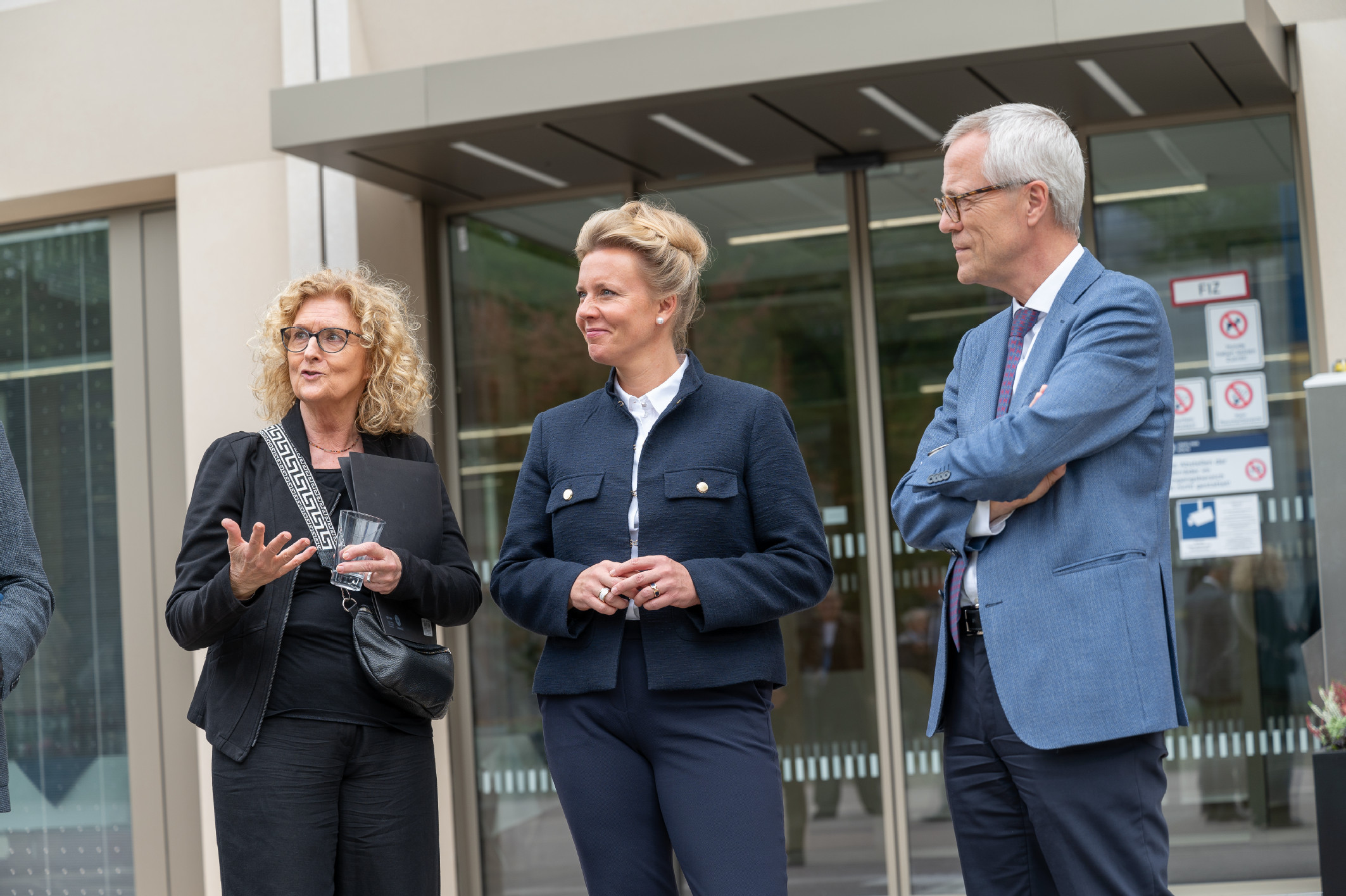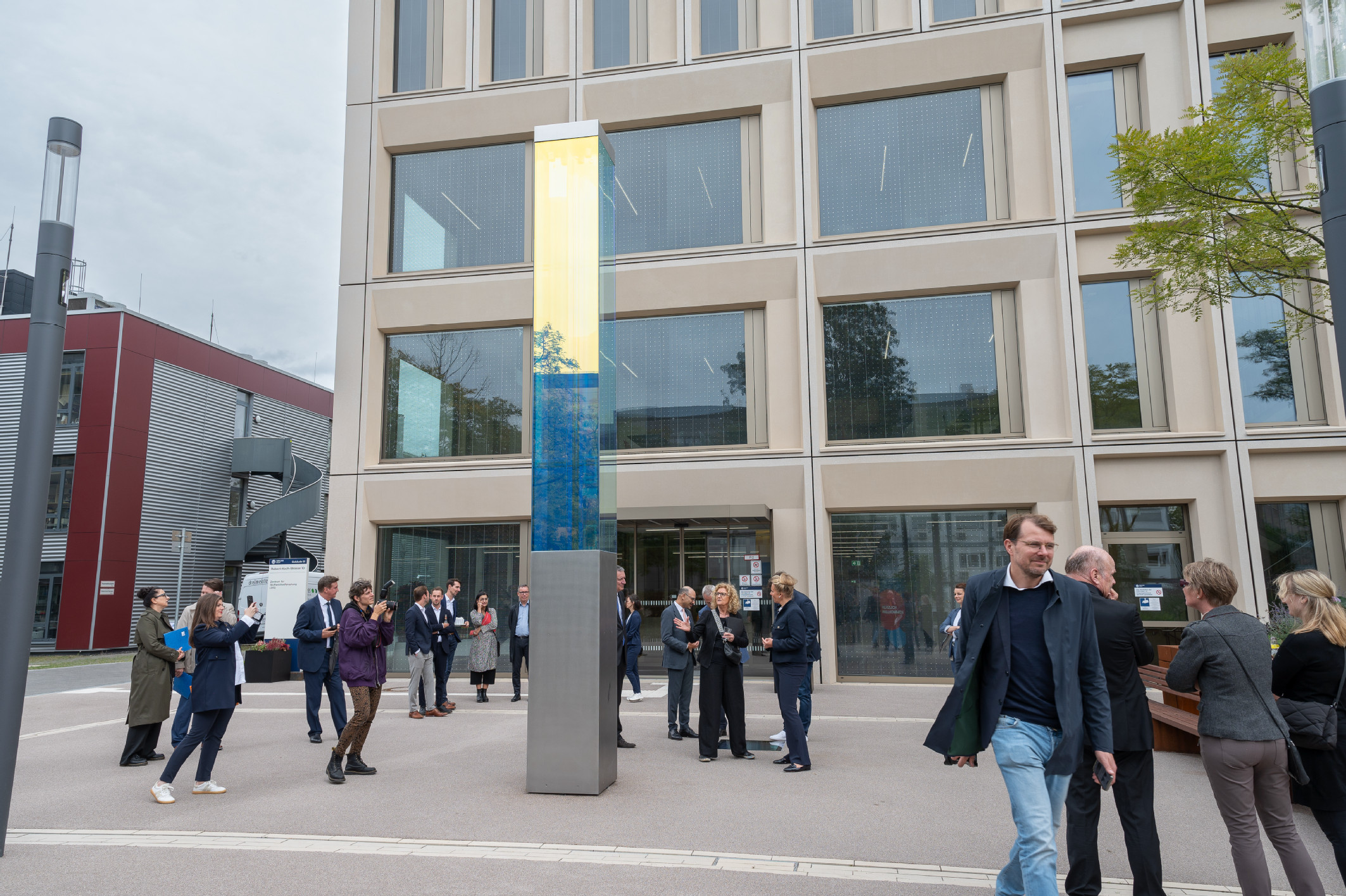Center for Metabolic Research
Einweihung des Zentrums für Stoffwechselforschung mit Ministerin Ina Brandes
Forschung am Zentrum für Stoffwechselforschung
Forschungsthemen
Forschende im ZfS
Besondere Techniken und Core Units
Interdisziplinäre Zusammenarbeit
Inbetriebnahme
Informationen rund um das Bauwerk
Förderung
University of Cologne to receive 46 million euros for a centre for metabolic research
The Joint Science Conference of the Federal Government and the Federal States ("GWK") is funding the construction of a new Centre for Metabolic Research ("ZfS") at the University of Cologne to the tune of 46.6 million euros. In the new research building, about 90 scientists and more than 80 employees will work together in nine working groups from the Faculty of Mathematics and Natural Sciences and the Faculty of Medicine.
The new building, which covers around 7,240 m², will be built on the current Experimental Medicine site. Construction is scheduled to start in 2019 and the building is scheduled to go into operation in 2023. The grant is regarded as a milestone for the further expansion of metabolic medicine on the Life Science Campus in Cologne. Professor Dr. Dr. Thomas Krieg, Dean of the Faculty of Medicine at the University of Cologne, says: "The fact that we have succeeded in securing the new building for a unique, interdisciplinary research building is a major step for the University of Cologne as a research location: I am particularly pleased that we can build on our successful work in the research focus "Homeostatic Principles in Metabolism and Tissue Regeneration", which is an essential part of the University's core profile area "Age-Associated Diseases". We want to identify basic metabolic processes in order to advance new therapies for metabolic-associated diseases. The funding is aimed at finding answers to a broad spectrum of common diseases that are highly relevant to society and for which we urgently need new treatment methods, making use of all synergy potentials".
With the Centre for Metabolic Research and the simultaneously planned expansion of the Max Planck Institute for Metabolic Research and the interaction with the Cluster of Excellence for Age-Associated Diseases CECAD, the Centre for Molecular Medicine, the Cologne Centre for Genomics and the Centre for Clinical Studies, Cologne aims to become a leading international location in metabolic research. Obesity currently affects about 30% of all people in Germany. The World Health Organization predicts a decrease in average life expectancy as a result of obesity and overweight from the year 2030. These diseases result in secondary diseases such as high blood pressure, coronary heart disease, type 2 diabetes, cancer and various orthopaedic and psychological conditions. About five percent of all health expenditure in industrialized countries is due to obesity, in Germany about 30 billion euros annually. The Centre for Metabolic Research will act as a catalyst to identify new metabolic regulation principles as biomarkers or as a starting point for therapies across a broad spectrum of diseases.
A key initiator of the project is the physician and scientist Professor Dr. Jens Brüning (endocrinologist): "I am glad that in future we will be able to devote even more attention to scientific questions on metabolic diseases. Cologne is an ideal location with its interdisciplinary and comprehensive research activities and the connection to the state-of-the-art medicine of the University Hospital: "With the new centre we have the opportunity to use proven translation processes so that findings reach the patient quickly.
The cross-sectional area "Identification of new metabolites as biomarkers and pathomechanisms of metabolic diseases" provides the basis for the deciphering of new mechanisms, which are being investigated in detail in the research areas "Central nervous regulation of metabolism", "Molecular mechanisms of insulin resistance of peripheral organs" and "Pathophysiology of metabolism-associated secondary diseases", by means of state-of-the-art mass spectrometry methods and subsequent bioinformatic evaluation of the high-throughput data obtained.
As a joint task under Article 91b (1) of the Basic Law, the Federal Government and the Federal States promote the realisation of large research investment projects at universities which are characterised by excellent scientific quality and national importance. The Federal Government provides 298 million euros annually for half of the financing of the construction of research buildings, including large-scale facilities. Half of the investment is borne by the state in which the funded university is located. At the end of June 2018, GWK had selected a total of 15 projects at German universities for the current funding phase starting in 2019.
Press release of the University of Cologne from 6.7.2018
Editor: Frieda Berg +49 221 470-1704
Responsible: Dr. Patrick Honecker MBA

